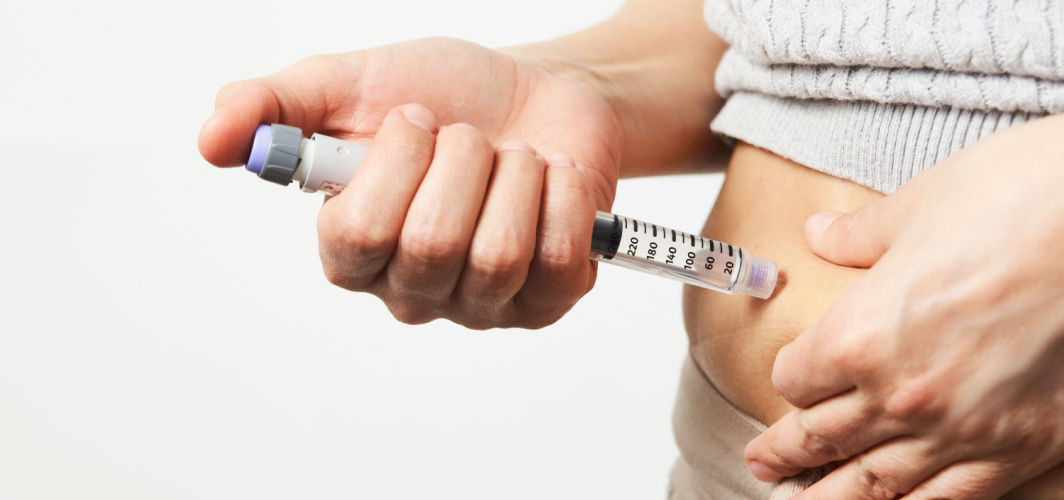Diabetes Management
Empowering Athletes with Diabetes: Strategies for Optimal Performance
2 min read
By Apollo 24|7, Published on - 22 August 2024
Share this article
0
0 like
.jpg?tr=q-80)
For athletes managing diabetes, optimising performance may seem like a challenging feat. However, a combination of careful management strategies can make it possible. Nutrition, insulin management, and education are key components of this holistic approach; enabling athletes to perform at their best while keeping their health in check. Let us explore these points in detail
Optimised Nutrition for Performance
Athletes with diabetes should focus on their carbohydrate intake, given its direct impact on blood glucose levels. Depending on the intensity and duration of training, the carbohydrate intake should be adjusted. On high-intensity training days, upping the carbohydrate intake can aid in maintaining glucose levels. During intense physical activity, the muscles draw energy, resulting in a higher risk of low blood sugar, which in turn can affect athletic performance. Conversely, on rest days, lowering the intake can help in improving overall glycemic control.
The timing and composition of meals also play a significant role in managing diabetes. Balanced meals comprising carbohydrates, proteins, and fats should be incorporated into an athlete's diet. Regular snacks during intense training periods ensure stable blood glucose levels.
Moreover, hydration is paramount during exercise to prevent dehydration and maintain performance.
Insulin Management Strategies
Managing insulin doses effectively can help athletes optimise their performance. They may need to adjust their insulin doses based on the intensity of physical activity. Regular blood glucose monitoring before, during, and after exercise aids in preventing hypoglycaemia and hyperglycaemia – conditions that could potentially affect performance negatively.
Educational Support and Awareness
Apart from self-management strategies, the support teams of athletes should also be well-versed with diabetes management techniques. They should know how to recognise the signs of hypoglycaemia, indicated by dizziness, confusion fainting and hyperglycaemia and understand the significance of meal timings.
In addition, athletes must collaborate with doctors to create a personalised management plan which considers their unique needs and the demands of their sport.
With these strategies in place, athletes with diabetes can effectively manage their condition while honing their sports prowess. Optimising performance is achievable by combining nutrition management, effective insulin management, and continuous education. These techniques not only ensure safety during athletic activities but also encourage a better quality of life.
For a more comprehensive understanding and assistance in managing diabetes, consider enrolling in the Apollo Super 6 programme. It offers an integrated approach to managing type 2 diabetes with lifestyle changes and personalised support, enhancing active lifestyles and improving sleep quality.
Diabetes Management
Consult Top Diabetologists
View AllLeave Comment
Recommended for you

Diabetes Management
Mindfulness and Relaxation Techniques: Allies in Diabetes Management
Mindfulness and relaxation techniques, including Mindfulness-Based Stress Reduction (MBSR), meditation, and yoga, can be powerful tools for managing diabetes. They help reduce stress, improve mood, enhance coping mechanisms, lower blood pressure, and promote overall well-being.

Diabetes Management
How to Test for Insulin Resistance
To test for insulin resistance as a diabetic, common methods include fasting glucose and insulin tests. These help assess how your body manages blood sugar. Pay attention to risk factors like age, family history, and lifestyle. If diagnosed, focus on lifestyle changes—adopt a balanced diet, engage in regular exercise, and monitor your blood sugar levels. Early detection is key to effective management, empowering you to make informed choices for better health. Always consult with your healthcare provider for personalised guidance.
.jpg?tr=q-80)
Diabetes Management
Diabetes and Fasting: Things to Keep in Mind While Fasting in Sawan
Planning to fast during Sawan but concerned about managing your diabetes? Worry not. With correct dietary choices, regular monitoring of blood sugar levels, and professional advice, you can safely undertake your religious observances without compromising your health. Learn more about managing diabetes while fasting and how the Apollo Super 6 programme can help you on this journey.
Subscribe
Sign up for our free Health Library Daily Newsletter
Get doctor-approved health tips, news, and more.
Visual Stories

8 Fruits That are Incredibly Healthy for Diabetes
Tap to continue exploring
Recommended for you

Diabetes Management
Mindfulness and Relaxation Techniques: Allies in Diabetes Management
Mindfulness and relaxation techniques, including Mindfulness-Based Stress Reduction (MBSR), meditation, and yoga, can be powerful tools for managing diabetes. They help reduce stress, improve mood, enhance coping mechanisms, lower blood pressure, and promote overall well-being.

Diabetes Management
How to Test for Insulin Resistance
To test for insulin resistance as a diabetic, common methods include fasting glucose and insulin tests. These help assess how your body manages blood sugar. Pay attention to risk factors like age, family history, and lifestyle. If diagnosed, focus on lifestyle changes—adopt a balanced diet, engage in regular exercise, and monitor your blood sugar levels. Early detection is key to effective management, empowering you to make informed choices for better health. Always consult with your healthcare provider for personalised guidance.
.jpg?tr=q-80)
Diabetes Management
Diabetes and Fasting: Things to Keep in Mind While Fasting in Sawan
Planning to fast during Sawan but concerned about managing your diabetes? Worry not. With correct dietary choices, regular monitoring of blood sugar levels, and professional advice, you can safely undertake your religious observances without compromising your health. Learn more about managing diabetes while fasting and how the Apollo Super 6 programme can help you on this journey.

